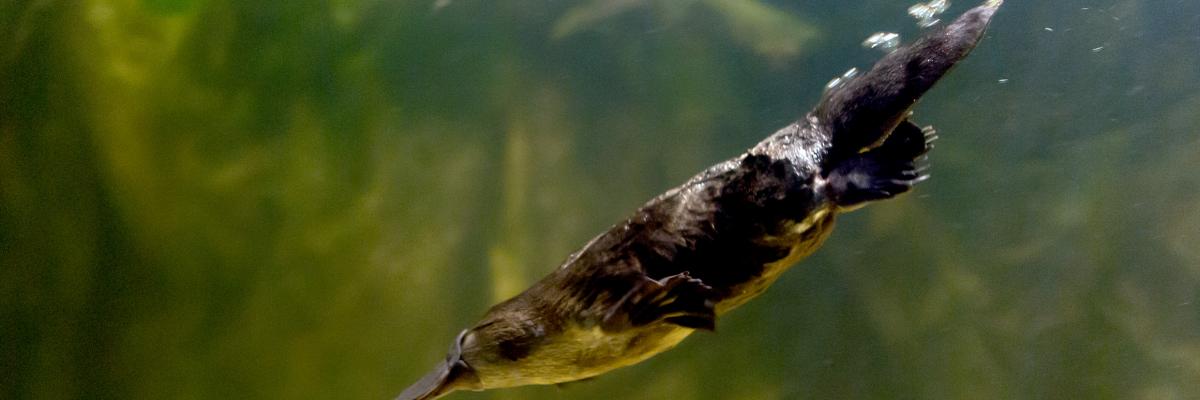Sex chromosomes of the platypus & echidna

Study the meiotic organisation of monotreme sex chromosomes – that’s genetics research into the platypus and echidna.
Monotremes feature an extraordinarily complex sex chromosome system that consists of 5X and 5Y chromosomes in platypus and 5X and 4Y chromosomes in echidna. At the first meiotic division the ten sex chromosomes in male platypus (nine in echidna) assemble into a sex chromosomes chain.
Over the past five years we have been able to identify these sex chromosomes and show how they are arranged in the chain. We have also shown how they commence pairing in prophase I, how they segregate at anaphase I, and where they reside in mature sperm.
Our current work investigates the composition of the synaptonemal complex (formed by proteins that hold chromosomes together at meiosis I). We also investigate if the monotreme sex chromosome complex undergoes sex chromosome inactivation as in other mammals. In addition, we investigate the pattern of meiotic recombination on monotreme sex chromosomes.
Study genetics, monotreme genomics, evolution and conservation
Our research interest is to understand how genes and genomes have evolved different function and organisation.
We are using species that occupy key evolutionary positions such as monotremes (platypus and echidna) and birds (predominately chicken).
Areas we work in include sex determination, sex chromosome organisation and the evolution of monoallelic gene expression.
We also collaborate with industry partners to develop genetic and genomic application in conservation biology and human disease.

Supervisors
Research area: Genetics, monotreme genomics, evolution and conservation
Recommended honours enrolment: Honours in Molecular and Biomedical Science
